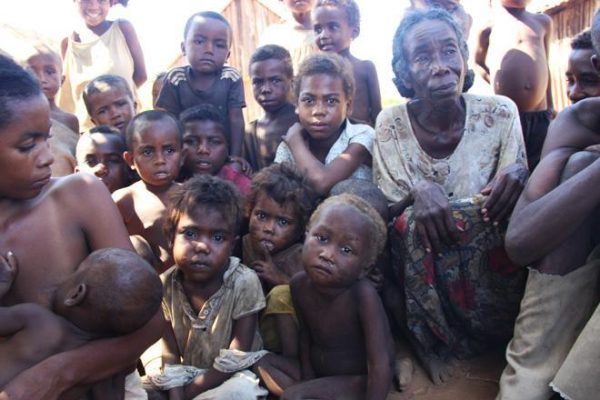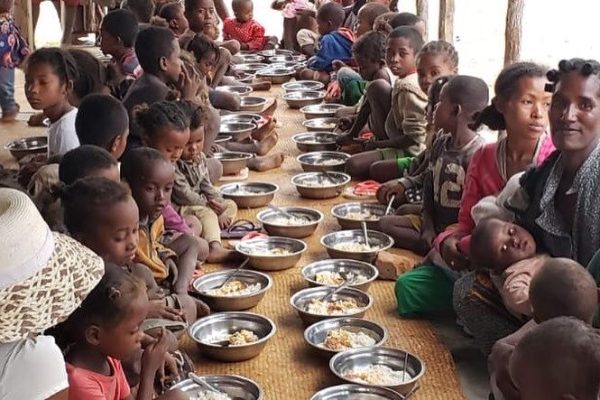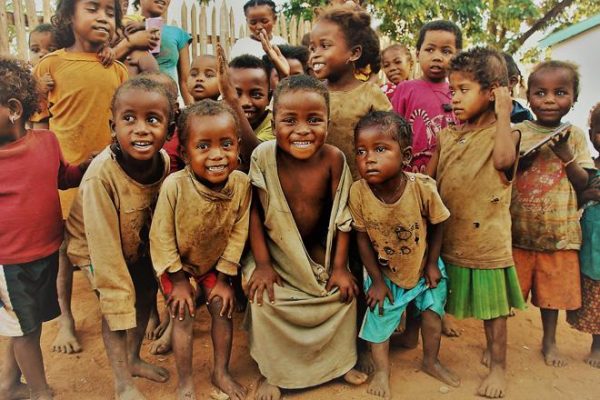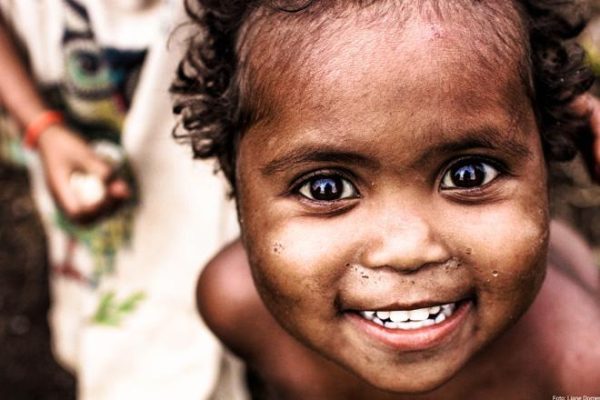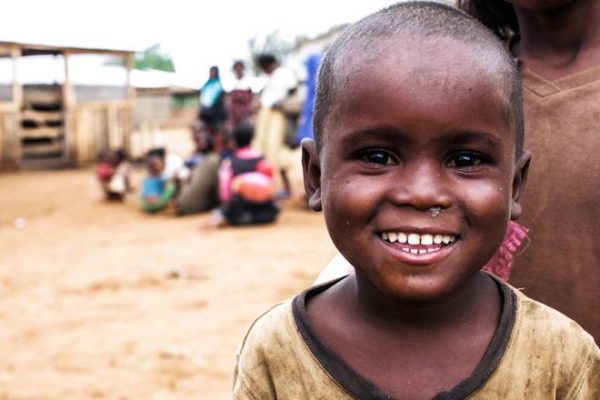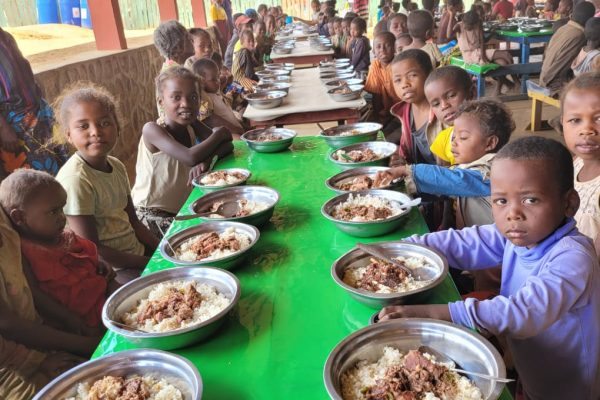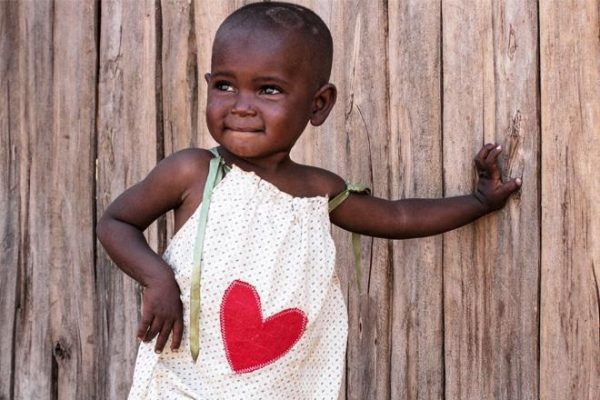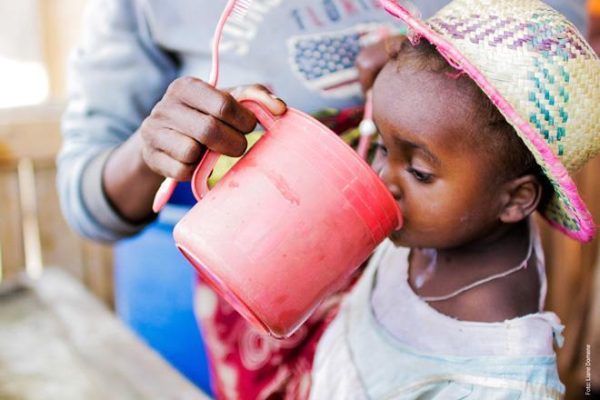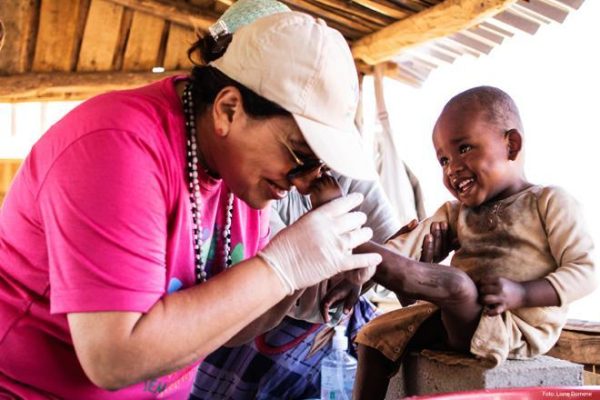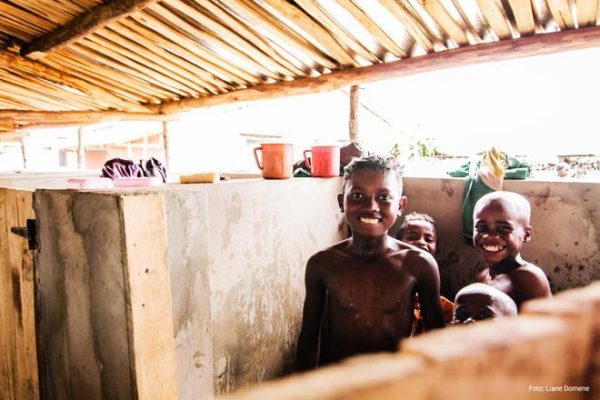Compassion, Dignity, and Transformation in One of the Most Vulnerable Regions in the World
Southern Madagascar is facing one of the world’s most severe humanitarian crises, marked by extreme hunger, prolonged drought, and a lack of access to even the most basic conditions needed to live with dignity. Since February 2017, we’ve been working in the region to help change that reality.
Today, we support around 11,000 people across 13 Welcome Centers, where we provide food, hygiene, education, vocational training, cultural activities, and income-generating opportunities. In food alone, we serve over 242,000 meals each month, bringing nourishment and hope to those who once lived in extreme vulnerability.
Our programs also include a variety of training and sustainability initiatives, such as workshops in sewing, soap making, woodworking, handicrafts, biochar, eco-bricks, and agroforestry. We’ve even established a community bakery that produces bread both for daily meals and as a source of income.
Horova School now has over 600 students enrolled and 16 classrooms, offering quality education and helping to build a brighter future for the children of the region.
The FSF Medical Clinic operates 24 hours a day, 7 days a week, with an average of 6,500 consultations per month and 24 inpatient beds, providing essential care to a population that once had no access to even basic medical services.
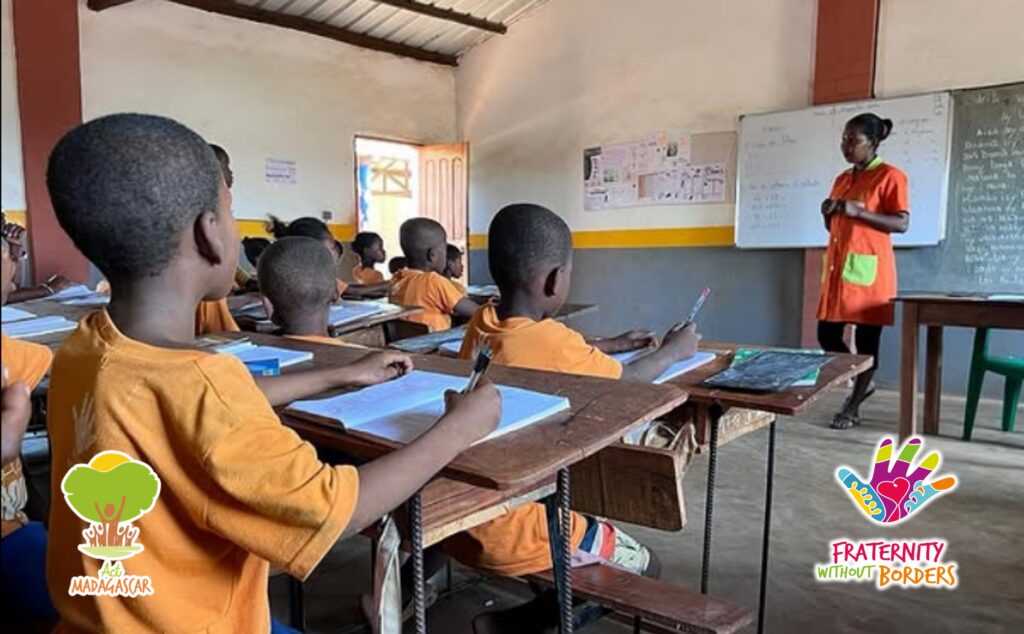
HOROVA SCHOOL
Education with dignity to transform Madagascar’s future
Inaugurated in March 2023, Horova School is a symbol of hope in southern Madagascar. With the capacity to serve up to 1,000 students, the school already welcomes 600 children across 16 classrooms, offering full-day education from early childhood through elementary levels.
Children receive three nutritious meals a day, full uniforms, and all necessary school supplies — in a welcoming and well-equipped environment designed for learning. The school follows a Montessori-inspired approach, encouraging autonomy, mutual respect, and humanized discipline.
“Horova” means a good place in the future — and that’s exactly what we strive to offer every day: a real opportunity to break the cycle of poverty through education.
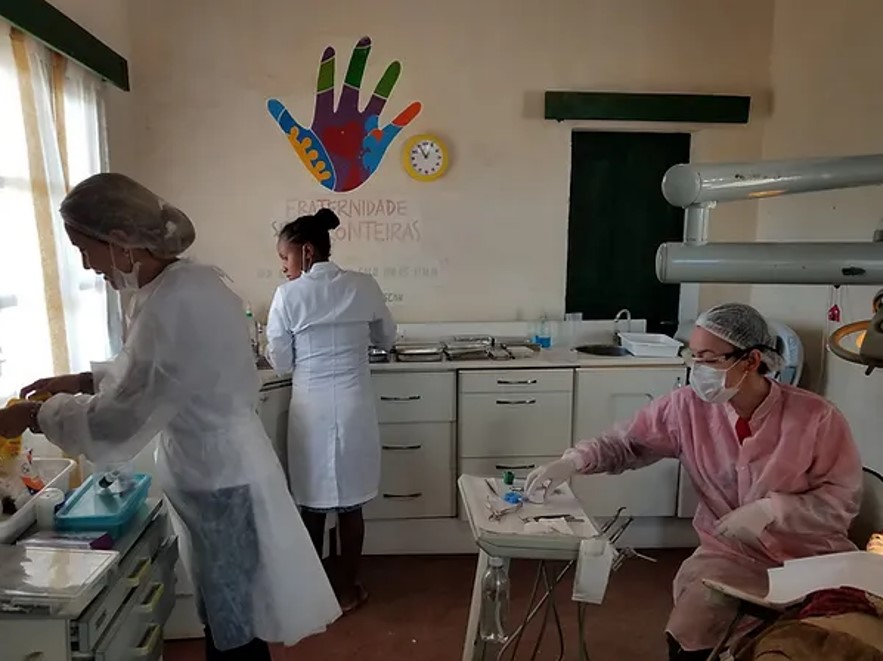
THE FIRST SHELTERING CENTER
We opened two Welcome Centers in the city of Ambovombe. The first, which also serves as the FSF headquarters in Madagascar, welcomes young children who were living on the streets, begging for scraps. Here, they receive daily meals, hygiene care, and participate in recreational and cultural activities.
None of the children we welcomed had ever attended school. So, we prepared folders, purchased school supplies and uniforms, and enrolled all 1,762 children in school.
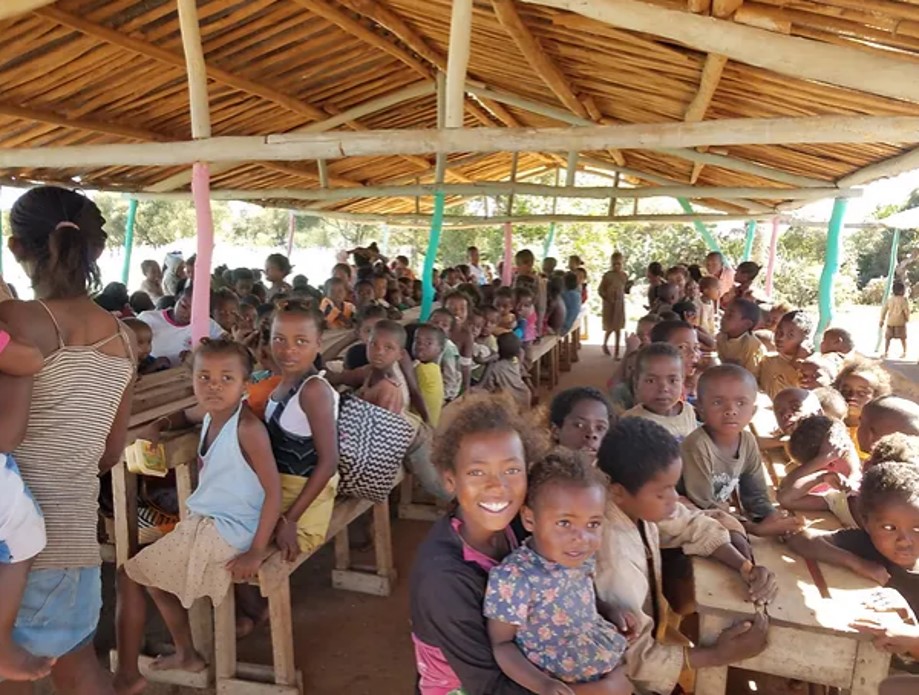
FIELD OF PEACE (Camp de la Paix)
The inauguration of the new Field of Peace in Madagascar has allowed us to expand the services provided by our Medical Clinic. We now have two pavilions with 16 consultation rooms and 24 regular inpatient beds. The space is also equipped with sinks for proper hygiene, gynecological tables and exam beds, and a dedicated vaccination room.
In addition to the clinic, the Field of Peace features a larger, fully equipped dining hall capable of serving over 4,000 meals every day. The space was thoughtfully designed to accommodate up to 800 people at once.
And something as rare and precious as a shower in Madagascar is now more accessible, with 40 showers operating simultaneously.
Every detail makes a meaningful difference in the daily lives of thousands of families.
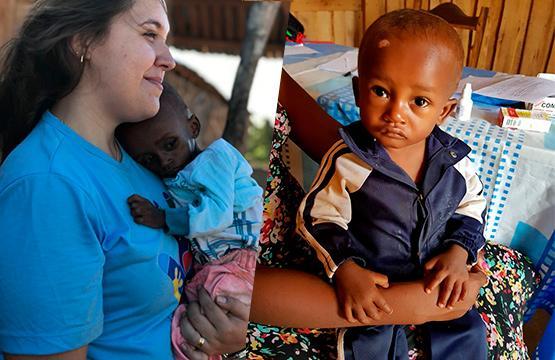
NUTRITION CENTER
At the Field of Peace unit, we built a health care center and established an on-site pharmacy. During our humanitarian caravans, volunteer doctors provide expanded medical services to the community.
The village of Marafono now receives monthly visits from our team and volunteers, who deliver hot meals to those in need.
Before Fraternity Without Borders arrived, the only food available in the region was cactus fruit and leaves — used simply to ease the pain of hunger.
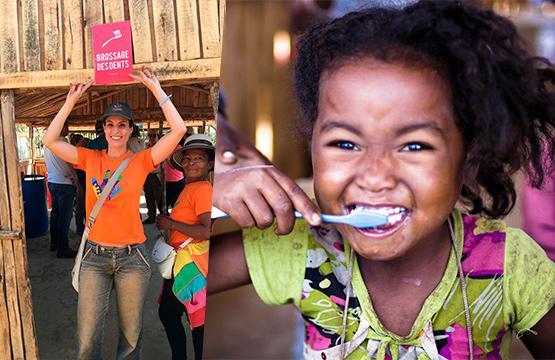
DENTAL CARE
Many children in Ambovombe had never even seen a toothbrush.
We collected toothbrushes and toothpaste, taught children and mothers the basics of oral hygiene, and trained local volunteers to continue sharing this knowledge within the community.
We set up two dental offices, and thanks to the loving work of volunteer dentists, smiles are beginning to shine across Madagascar.
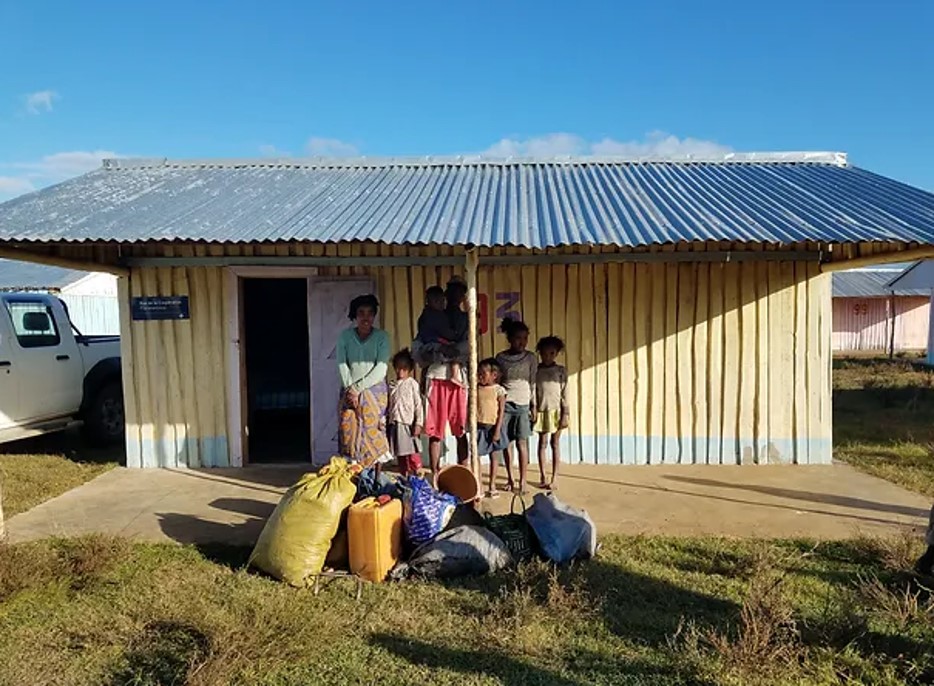
FRATERNITY CITY
One hundred families who once lived in extremely precarious conditions now have a new home in the Fraternity City.
Built on a donated 45,000-square-meter plot of land, the project includes 100 houses, an artesian well, vocational workshops, and sustainable farming initiatives.
The community is encouraged to recognize their own potential, rebuild their self-esteem, and embrace values that promote peace and shared growth.


